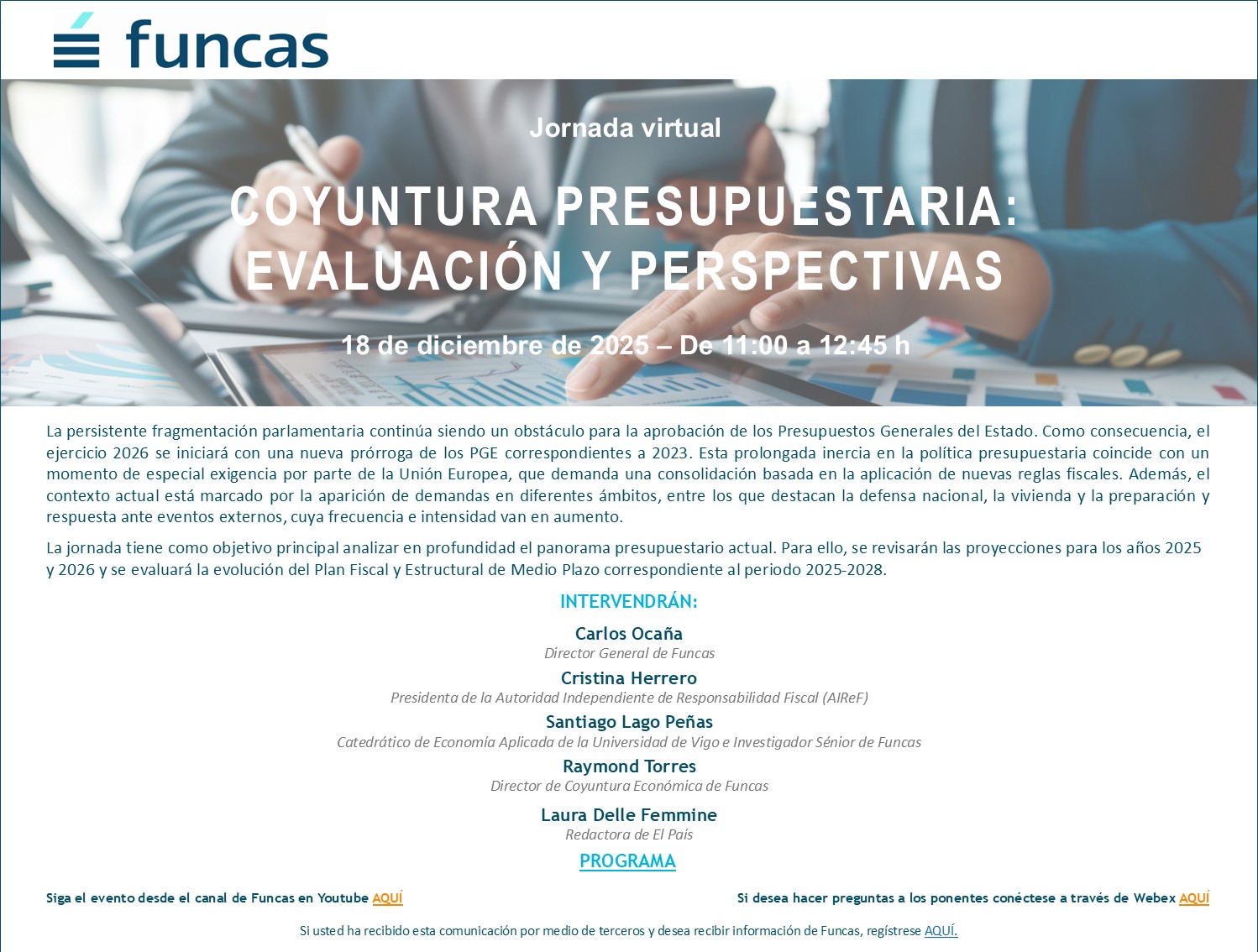Public economy and taxation
Two lines of research are contemplated under this section: on the one hand Taxation and on the other, the Public Economy and Well-being.
Funcas’studies on Taxation are aimed at rigorous analysis and its impact on the economic environment in general, paying special attention to the Spanish tax reality. To achieve this, the unit develops and enhances the study, both theoretical and applied, of tax issues and their impact on economic reality. In this sense, it is a platform from where quick answers to the questions that are usually asked in the study of tax reforms, present or future – tax impact, distributive effects, efficiency costs, social welfare – are offered, with agility and rigor. On the other hand, it also offers comparative analyzes of the Spanish economic reality with respect tosurrounding countries in order to identify weaknesses, inefficiencies and proposals for improvement.
The research on Public Expenditure, Economic Regulation and Well-being aims to promote and develop the analysis of public sector intervention in market economies, with special attention to the set of actions that make up the social welfare system, taking as a main reference the Spanish and European reality. The work program therefore includes aspects related to the regulation of markets, the finances of public administrations and, in particular, the examination of the objectives and instruments of social policy, their consequences on economic growth and social cohesion, and the relations between the public, private and non-profit sectors.
Highlighted
A falta de reformas significativas, el gasto público en pensiones está abocado a llegar al 8% del PIB en las próximas dos décadas, según datos de AIReF. Pero el envejecimiento, señala Desiderio Romero, de Funcas, conllevará también, presumiblemente, un impacto para los ingresos públicos. Pese a que la entrada de inmigrantes ha suavizado la caída de la ratio entre pensionistas y trabajadores, cabe predecir que el paulatino incremento relativo de los primeros supondrá una merma en la recaudación impositiva, ya que tanto las bases sometidas a tributación en IRPF de las pensiones como los tipos impositivos que se les aplican son menores que en el caso de los salarios.
Artículo
The Spanish economy’s growth cycle: Constraints and outlook through 2027
Fecha:
November 2025
Spain’s economy continues to outperform the eurozone average, driven by robust domestic demand and immigration-fueled job creation. Yet, structural weaknesses in housing, fiscal policy, and private investment pose growing constraints as external
demand fades.
Artículo
The macroeconomic drivers of fiscal sustainability
Fecha:
November 2025
Spain’s debt ratio has fallen more than four percentage points since 2019, outperforming most euro area economies thanks to strong growth and favorable financing conditions. Yet demographic headwinds and persistent productivity gaps are emerging as key risks to maintaining long-term fiscal sustainability.

